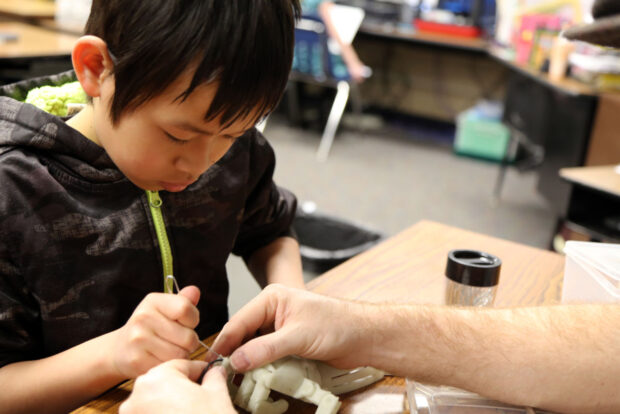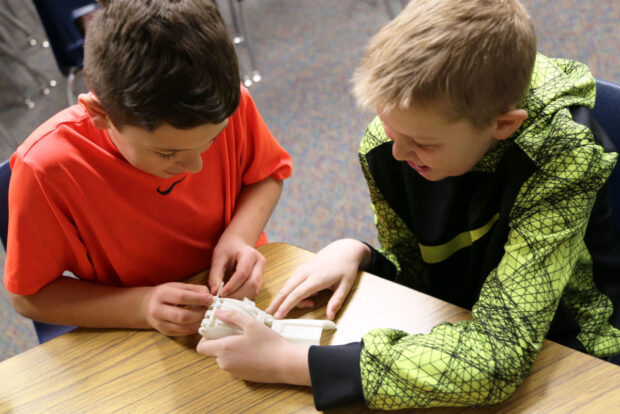Kirsten Grover and her students are helping children around the world who were born without hands or have lost hands due to an accident.
Made for less than $50 a hand, students are using a 3D printer to create plastic fingers and wire tendons to engineer prosthetic hands.
“I want my students to be tied to the community and the world around them,” said Grover, a fourth-grader teacher at West Ada’s Joplin Elementary School. “I want kids to know they can help people.”
The prosthetic hands work with the motion of the user’s wrist or elbow. They have limitations. They do enable children who are missing fingers and hands to catch a ball, hold a cup and do simple tasks.
“It’s such a small gift to give to kids we don’t even know and will never meet,” Grover said. “I hope this project will teach the kids to continue sharing and paying it forward.”
The assembled prosthesis will be donated to an organization called The Hand Challenge, which distributes to kids in need. Grover’s students have made five sets of hands this year and Grover plans to make this a class project every year.
“Putting the hands together makes me feel helpful,” said fourth grader Dig Roy. “I’m helping someone’s life.”
Grover heard about the project over the summer and created a DonorsChoose.org account. She asked for a $500 3D printer and got funds within weeks from local donors and the Chevron Fuel Your School program. Grover also received community donations of supplies from Nampa’s Howard’s Tackle Shoppe and Idaho Orthotic and Prosthetic Services.
“The 3D printer is not perfect and several large pieces have been ruined in the middle of the printing process,” Grover said. “One to two hours down the drain —teaching us all patience.”
Compassion is a component of assembling each hand.
“As their teacher, I want to give them the best opportunity to learn in an environment that meets their needs and allows them to explore beyond their imagination,” Grover said.
If you’re an educator interested in The Hand Challenge, you can email Grover with questions.


